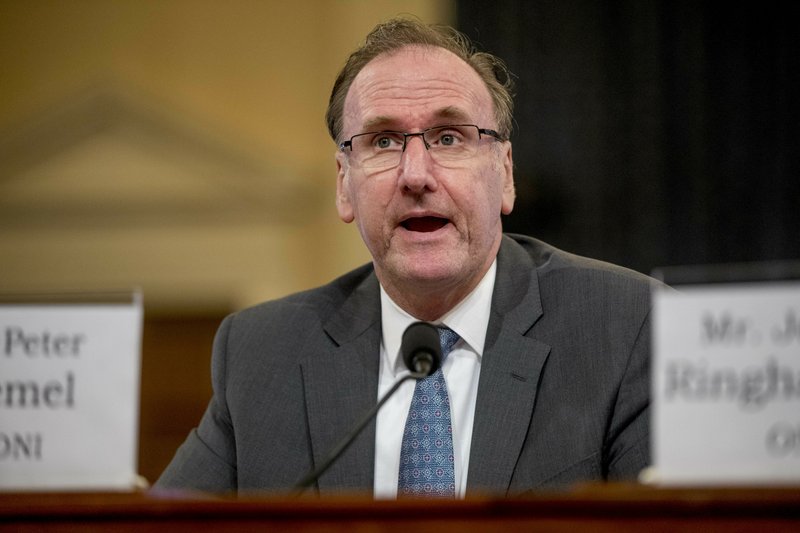WASHINGTON -- Senior U.S. officials warned Wednesday that climate change is an increasing threat to national security, a message at odds with the White House's effort to downplay the threat from global warming.
Military and intelligence officials outlined a range of long-term threats arising from climate change, including food and water shortages that can produce political turmoil and land disputes as well as melting ice in the Arctic that Russia and other adversaries could exploit for commercial gain.
"Climate change effects could undermine important international systems on which the U.S. is critically dependent such as trade routes, food and energy supplies, the global economy, and domestic stability abroad," Rod Schoonover, a senior State Department analyst focusing on global issues, told members of the House Intelligence Committee. "Most countries, if not all, are already unable to fully respond to the risks posed by climate-linked hazards under present conditions."
The assessments laid bare the disconnect between senior officials who regard climate change as a long-term, global threat and the views of President Donald Trump, who has repeatedly broken from that message and even belittled his own government's views.
"I believe that there's a change in weather, and I think it changes both ways," Trump said in an interview on Good Morning Britain that aired Wednesday. "Don't forget it used to be called global warming. That wasn't working. Then it was called climate change. Now it's actually called extreme weather, because with extreme weather, you can't miss."
Trump cited severe conditions from long ago as evidence for his views, even though scientists say extreme events are becoming more common, driven by climate change.
"Forty years ago, we had the worst tornado binge we've ever had," he said. "In the 1890s, we had our worst hurricanes."
Trump, who was in Britain on a state visit this week, said he was impressed by the passion displayed by Prince Charles, who has been an outspoken advocate on climate issues. The two were supposed to meet for 15 minutes, Trump said, but ended up speaking for an hour and a half. He said he shared the prince's desire for a "good climate as opposed to a disaster."
But the president blamed China, India and Russia for polluting the environment and said the United States was responsible for "among the cleanest climates."
In Washington, the politics of climate change were present in an otherwise science-heavy House committee hearing, with one Republican congressman, Rep. Chris Stewart of Utah, asking whether public discourse on the topic was truly helped "when you hear warnings for emotional claims that turn out not to be true."
Peter Kiemel, counselor to the National Intelligence Council at the Office of the Director of National Intelligence, replied that he and the other witnesses were attempting to separate the national security implications of climate change from the mere emotional concerns.
One particular issue Kiemel singled out was the gradual thawing of the Arctic, which he said can create increased opportunities for mining, fishing and shipping for Russia by making the path between Asia and North America more navigable.
"As a result, the Arctic is emerging as a new domain of strategic competition," Kiemel said. "Russia, China and others are dramatically increasing their activities and investments in the region."
Jeff Ringhausen, senior naval intelligence manager for Russia and Eurasia at the Office of Naval Intelligence, was more cautious in his assessment, but still conceded a potential threat to U.S. allies posed by a changing Arctic environment.
He said Russia was working to modernize infrastructure on its northern coast and on some of its Arctic islands, with the goal of establishing itself as an economic force. Though Moscow believes there's substantial economic potential in the Arctic, U.S. officials aren't so confident, Ringhausen said.
"Naval intelligence assesses that this economic potential exists, but that the Russian government appears overly optimistic regarding its development in the near and medium term," he said.
He said that while Arctic shipping is likely to increase as a result of thawing, the region will probably account for only a small portion of overall global shipping.
The more direct threat is to U.S. allies in the Arctic rather than to the U.S. itself, he said.
Information for this article was contributed by Eric Tucker of The Associated Press; and by Isaac Stanley-Becker of The Washington Post.
A Section on 06/06/2019
